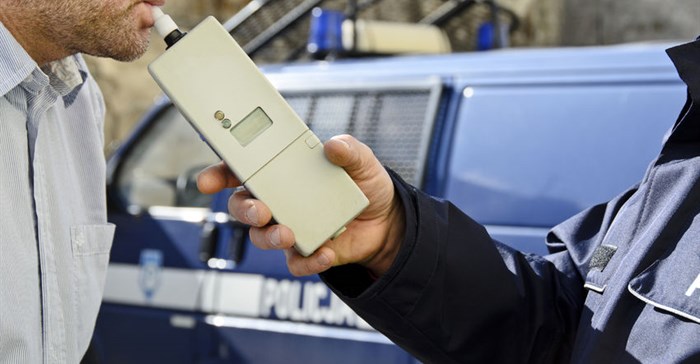Roadside memorials like wooden crosses and stone markers, marking the locations of fatal traffic accidents, have become a common sight in South Africa. The reality is that many of these accidents are caused by professional drivers in the transport industry and the number of accidents caused by driving under the influence of alcohol or drugs is unacceptably high. Therefore, it is essential to place tighter control and regulation on the transport sector to help reduce the number of alcohol-related accidents, injuries and deaths on SA's roads.

©Monika Gruszewicz via
123RFWorldwide statistics indicates that every year around 1.2 million people die in road traffic accidents - a staggering 3,000 every day. Global forecasts predict that the number of fatalities on the roads will continue to increase dramatically if this current trend continues. The World Health Organisation (WHO) has emphasised the need for effective legislation to be implemented to ensure that the transportation industry becomes regulated and monitored, in order to reduce this trend. Alcohol consumption remains a major contributing factor to both the risk of road traffic incidents as well as the severity of injuries and the rate of fatalities that result.
While the frequency of drinking and driving varies between countries, decades of research have shown that drunk drivers have a significantly higher risk of being involved in a road crash than drivers who have not consumed alcohol. According to the South African national injury mortality surveillance system, there were 25,361 fatal injuries registered at 32 of the state mortuaries in 2001. This represents approximately 35% of all non-natural mortality in South Africa in that year. Transport-related deaths accounted for 27% of all the fatal injuries.
Transportation industry must become regulated and monitored
These statistics show that the transportation sector plays a significant role in the rate of accidents and fatalities on our roads. As recommended by WHO, a more regulated environment is essential. This needs to include the enforcement and auditing of daily, compulsory breathalyser testing and random drug testing as well as comprehensive alcohol and substance abuse policies, training and education.
The South African mining industry is an excellent example of how effective regulation and tight controls can help to curb the levels of drinking on the job, improving risk and ensuring adherence to the Occupational Health and Safety (OHS) Act. The mining industry is regulated with compulsory testing of all employees upon entering the premises before they can begin work. The Department of Mineral Resources ensures compliance to this requirement by performing regular audits of the mines, during which operations can be shut down until the mine managers can prove they have been performing adequate testing.
A similar practice needs to be adopted within the transport sector, with best practices requiring drivers to be tested before they are permitted to take out vehicles, as well as upon their return to ensure they have not been drinking while on the job. This process must be audited and enforced in order to ensure accountability and compliance with legal driving limits and daily compulsory breathalyser testing. Transport organisations also need to enforce a zero tolerance approach to driving under the influence, not only to ensure the safety of road users but also to comply with the OHS Act.
The benefits of regular testing and education
Many transport organisations view breathalyser testing to be a chore rather than something beneficial, as an added expense and a waste of time. However, the reality is that by possibly permitting drunk drivers on the road, they could be incurring significant damage to their own vehicle assets as the result of accidents, not to mention the loss of human life that could occur. In addition, drunk drivers tend to be erratic, driving at inconsistent speeds and leaning heavily on the brakes, which incurs additional daily wear and tear. Furthermore, by enforcing testing transport companies can benefit from reduced absenteeism as well as fewer late deliveries.
In addition to compulsory testing when drivers enter the premises and when they return from deliveries, transport companies should also augment this with educational programmes. Education on the dangers of alcohol consumption, and of driving under the influence, and practical examples of the devastating consequences that drunken driving can have, will all help to reduce the number of fatalities. Transport companies should also educate employees as to how they can drink safely, without being in danger of alcoholism or of contravening the laws around enforceable limits for professional drivers.
Ultimately, however, while transport companies need to play their part, it is essential for regulations to be put into place to enforce this zero tolerance approach. This must be driven by the government, as by putting these practices into law and performing regular audits of companies, it will be possible to drastically reduce the number of road deaths and injuries in South Africa.
















































